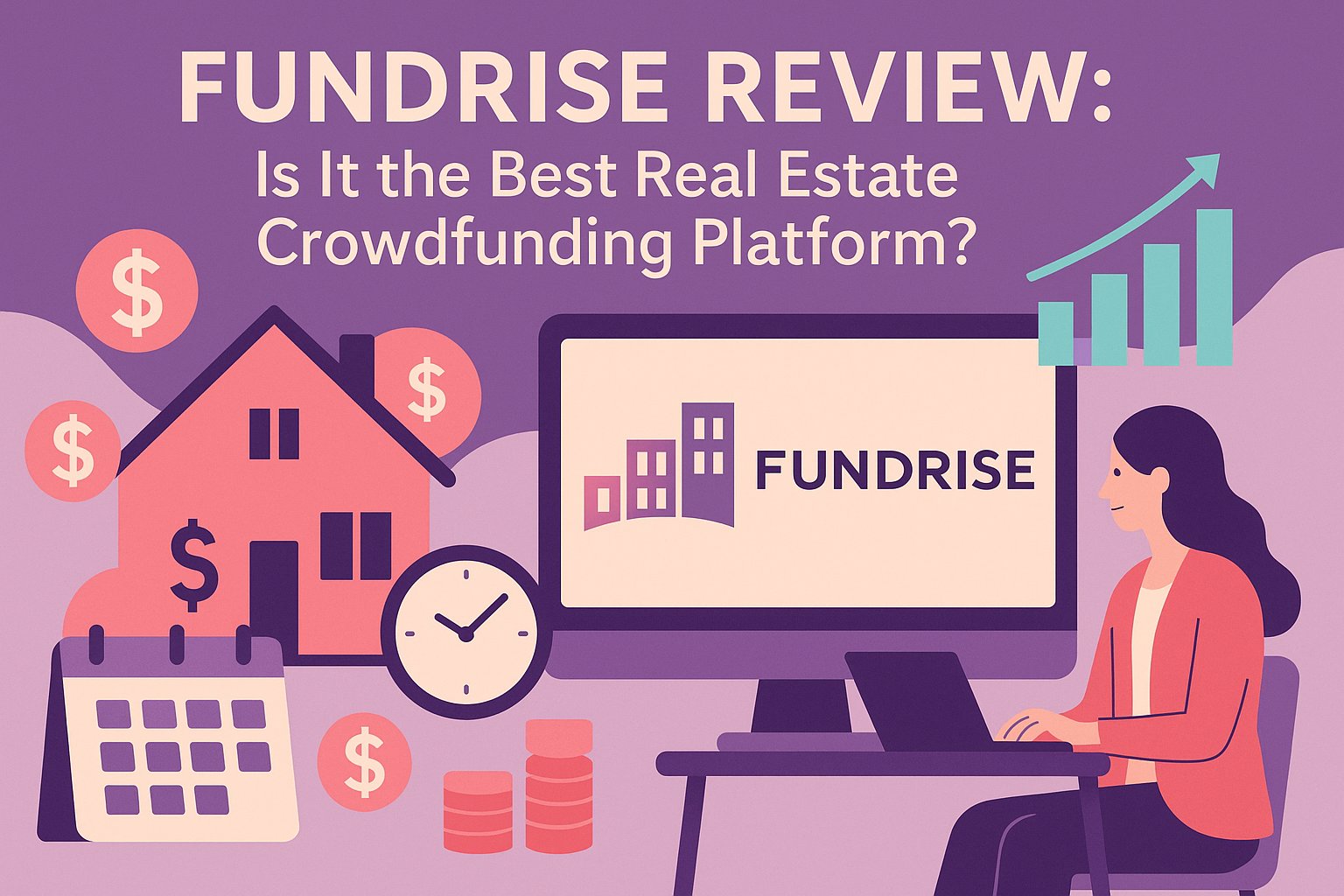Unlocking the Door to CrowdStreet: What Accreditation Means
For many aspiring investors, the world of real estate crowdfunding represents a thrilling opportunity to access institutional-quality commercial projects without the hassle of managing properties directly. CrowdStreet stands out as a premier online marketplace, connecting accredited investors to handpicked, single-asset offerings. However, unlike platforms that accept any retail investor, CrowdStreet enforces strict accreditation criteria. Understanding these requirements is essential for anyone eager to dive into high-potential CRE (commercial real estate) deals on the platform. In this article, we’ll demystify CrowdStreet’s accredited investor requirements—exploring the definitions, rationale, and steps you can take to qualify and gain entry to this exclusive investment arena.
Defining the Accredited Investor: Key Criteria Unveiled
At its core, the term “accredited investor” stems from securities regulations designed to protect less sophisticated individuals from high-risk investments. To qualify as an accredited investor, you must satisfy specific financial thresholds set by the U.S. Securities and Exchange Commission (SEC). There are two primary pathways: income-based and net worth–based. Under the income test, an individual must have earned at least $200,000 in each of the two most recent years—or $300,000 combined with a spouse—and have a reasonable expectation of the same income in the current year. Under the net worth test, an individual must hold a net worth exceeding $1 million, whether individually or jointly with a spouse, excluding the value of the primary residence. These thresholds reflect the belief that investors who meet these criteria possess sufficient financial sophistication and a cushion to absorb potential losses. Because CrowdStreet’s offerings often involve multi-million-dollar commercial properties with complex capital structures, the platform limits access to accredited investors to ensure participants understand the risks inherent in these deals.
Why CrowdStreet Requires Accreditation: Rationale and Benefits
CrowdStreet’s decision to restrict its marketplace to accredited investors is rooted in both legal compliance and investor protection. Commercial real estate deals typically entail higher minimum investments—often starting at $25,000—longer hold periods, and more intricate financial underpinnings than publicly traded REITs. By verifying accreditation, CrowdStreet aims to ensure that investors are financially equipped to participate and sympathetic to the market’s cyclical nature. Accredited investors typically have prior exposure to sophisticated investments, which helps guarantee they can navigate fluctuations in asset valuation, vacancy rates, or interest-rate pressures without compromising their financial wellbeing.
Furthermore, accreditation provides CrowdStreet and its sponsors with regulatory clarity. Under Regulation D, Rule 506(b) and 506(c) of the Securities Act of 1933, issuers can raise unlimited capital when selling to accredited investors without expensive registration requirements. This streamlined process benefits sponsors by accelerating deal closings and minimizing compliance overhead. Investors, in turn, enjoy access to a robust pipeline of institution-quality offerings that might never reach the general public. The trade-off—restricted access—ensures that participants possess a level of financial knowledge and resilience that aligns with the sophisticated nature of direct commercial property investing.
Breaking Down the Income Test: Salaries, Wages, and Beyond
If you’re eyeing CrowdStreet but don’t yet meet the net worth requirement, the income test may be your path forward. To qualify, you must have earned at least $200,000 individually—or $300,000 jointly if married—in each of the two most recent tax years, with a reasonable expectation of the same in the current year. Salaries and wages are the most common sources of qualifying income, but bear in mind that the SEC also counts bonuses, commissions, dividends, and certain other passive income streams, provided they are stable year over year. If you were a partner in a law firm, for instance, and consistently received partnership distributions exceeding $200,000, that income may qualify. Similarly, a successful small-business owner who draws substantial earnings and pays personal taxes on profits could meet the threshold. The “reasonable expectation” clause requires investors to demonstrate that their financial circumstances remain consistent; a one-time windfall won’t suffice. For those using the income pathway, it’s vital to review your tax returns, W-2s, and 1099s to confirm that your earnings meet the SEC’s standards.
Examining the Net Worth Test: Assets, Liabilities, and Primary Residence Exclusions
For many potential investors, the net worth route offers a clear benchmark: accumulate more than $1 million in assets, subtract your liabilities, and you’re eligible for accreditation—so long as you exclude your primary residence from that calculation. Counting assets can include cash, investments in brokerage and retirement accounts, real estate holdings (other than your home), business interests, and personally held assets like art or collectibles (provided they are valuated at fair market value). Liabilities include outstanding loans, credit card balances, and other debts. It’s common for an investor to hold $800,000 in equities, $300,000 in rental property equity, and $200,000 in cash—totaling $1.3 million in assets. Then, subtract mortgage balances, auto loans, or other liabilities to arrive at net worth. If, after those deductions, you exceed $1 million, you meet the net worth criterion.
Excluding the primary residence is critical because housing markets can be volatile. The SEC’s intention is to prevent homeowners from relying on paper equity in their homes—equity that may not be easily trapped or sold—to qualify for high-risk investments. Suppose your primary home is valued at $600,000 with a $400,000 mortgage balance. Despite owning $200,000 of equity in your home, that amount doesn’t count toward your accredited status. Any mortgage exceeding fair market value of the residence also counts as a liability, further emphasizing caution. By keeping the primary residence out of the equation, the SEC and CrowdStreet ensure investors’ true liquid net worth is sufficient to participate in commercial real estate crowdfunding.
Proving Your Accredited Status: Verification Methods on CrowdStreet
Once you believe you meet the income or net worth thresholds, the next step is verification. CrowdStreet partners with third-party verification services to confirm accreditation status without exposing your sensitive financial data to sponsors or other parties. Typically, you’ll fill out an online questionnaire and provide documentation—such as W-2s, tax returns, bank statements, or brokerage account statements—depending on whether you pursue the income or net worth pathway. Some investors prefer to work with an independent CPA or attorney who can provide a letter confirming their accredited status. This method is common for individuals whose incomes or net worth stem from less conventional sources, such as privately held business interests. The verification process generally takes no more than a few days, after which CrowdStreet grants you access to accredited-only offerings. It’s crucial to keep your documentation up to date; if your financial situation changes significantly—say you sell a business or take on substantial debt—you may need to reconfirm your status to continue investing.
Why Accreditation Matters for Risk Management and Deal Access
CrowdStreet’s accredited-only model provides two pivotal benefits: enhanced risk management and exclusive deal access. From a risk perspective, commercial real estate can be illiquid and subject to macroeconomic dynamics like interest rate changes and sector-specific headwinds. An accredited investor’s financial cushion typically permits them to absorb potential value fluctuations or extended hold periods without jeopardizing their overall portfolio. For example, if a gas station redevelopment sponsor in Texas faces construction delays and cannot commence rental income on schedule, an accredited investor has the reserves to withstand that temporary cash flow disruption.
On the exclusivity front, CrowdStreet’s curated marketplace emphasizes quality over quantity. Because each sponsor must undergo rigorous due diligence—from background checks and performance audits to market feasibility studies—CrowdStreet can maintain a high standard for projects posted on its platform. For accredited investors, this translates into an opportunity to evaluate institutional-grade offerings that often aren’t listed elsewhere. Whether it’s a multifamily apartment complex in the Southeast or a mixed-use office tower in California, CrowdStreet’s pipeline tends to feature projects that deliver a comprehensive investment thesis, including pro forma financials, market rent comps, and sponsor track record. The combination of accreditation and stringent deal vetting ensures that participants are armed with the information and financial readiness to pursue high-caliber real estate investments.
Navigating Complexities: Tips to Strengthen Your Accredited Profile
If you’re close to but not yet fully meeting the accredited criteria, there are strategic steps you can consider. First, accumulate assets in taxable or tax-advantaged accounts. Over time, regularly funding an IRA, 401(k), or taxable brokerage account erodes the liability side of your net worth equation as you pay down debts and grow assets. Second, maintain meticulous records. If you rely on partnership distributions or private company income, ensure your CPA provides a clean, detailed profit-and-loss statement that clearly delineates your earned income. For aspiring accredited investors in high-growth startups, retaining vesting schedules, option exercises, and equity valuations is vital—demonstrating real, accessible wealth instead of aspirational paper value.
Another often-overlooked strategy involves reviewing your debt structure. If you carry high-interest credit card balances or personal loans, paying those off can immediately boost your net worth calculation. Refinancing a mortgage at a lower interest rate can also free up cash flow, indirectly strengthening your future income projections—especially if you channel those savings into high-yield investments or business ventures. Additionally, keep an eye on retirement planning. While 401(k) and IRA balances are counted in net worth calculations (unlike primary residence value), they are less liquid due to tax penalties and distribution rules. However, they do contribute to your overall net worth, and if you maintain burgeoning retirement accounts, you may eventually cross the $1 million threshold.
Exploring Exceptions and Expanded Accreditation Standards
The SEC periodically updates the definition of an accredited investor to reflect changing financial landscapes. In August 2020, for instance, the SEC expanded non-traditional pathways: individuals with certain professional certifications—such as FINRA Series 7, 65, or 82 licenses—can now qualify regardless of net worth or income. Additionally, those who are “knowledgeable employees” of private funds, as defined under the Investment Company Act of 1940, may be deemed accredited. CrowdStreet has embraced these updates, allowing investors with approved FINRA credentials to verify accreditation through proof of exam passage and licensure. Likewise, directors, officers, or general partners of the sponsor issuing the securities may also meet accreditation requirements by virtue of their roles and insider knowledge.
Family offices with $5 million or more in assets under management also qualify as accredited entities. This means a family office run by a single family unit—managed by a team of professionals—can invest through CrowdStreet, provided it confirms its assets exceed the threshold. Similarly, trusts with assets over $5 million, not formed specifically to purchase the securities offered, and whose trustees are accredited, also qualify. These expanded pathways reflect the SEC’s intent to broaden the pool of sophisticated investors while still safeguarding retail participants from undue risk.
Alternatives for Non-Accredited Investors: Seeking Other CRE Avenues
If you do not yet meet CrowdStreet’s accreditation criteria, that doesn’t mean real estate crowdfunding is off-limits altogether. Several platforms cater specifically to non-accredited investors, offering diversified real estate funds with lower minimum investments. For example, companies like Fundrise and RealtyMogul (through their non-accredited REIT offerings) provide opportunities to participate in property portfolios with minimums as low as $500 or $1,000. While these vehicles may lack the granular, single-asset transparency of CrowdStreet’s offerings, they still expose investors to commercial real estate assets—ranging from multifamily apartments to industrial warehouses.
Moreover, non-accredited investors can explore public REITs, listed on major exchanges, which allow trading of diversified real estate portfolios in a liquid, publicly regulated environment. These REITs often focus on specific property types—such as healthcare facilities, retail centers, or data centers—enabling sector-based exposure without requiring high accreditation thresholds. Although public REITs exhibit greater price volatility due to stock market correlations, they also offer easy entry and exit points. For retail investors committed to growing their net worth, these alternative CRE channels can serve as stepping stones, facilitating asset accumulation until accreditation criteria are within reach.
The Road Ahead: Embracing Accreditation for Future Growth
CrowdStreet’s accredited investor requirements may feel like a high barrier for some, but they serve a vital purpose—protecting unqualified investors and preserving the quality of offerings available on the platform. By ensuring participants meet rigorous financial standards, CrowdStreet can maintain a marketplace filled with sponsor-driven, meticulously underwritten commercial projects. If you aspire to unlock these opportunities, focus on strengthening your financial profile: tally your assets and liabilities carefully, document your income streams, pay down high-interest debts, and consider professional accreditation pathways such as FINRA certifications. Over time, as you approach or surpass the $1 million net worth or $200,000 income thresholds, you’ll find yourself poised to join an exclusive community of investors who benefit from direct access to high-yield CRE offerings.
For those already accredited, the journey doesn’t end with verification. Treat each CrowdStreet investment as a partnership with a commercial real estate sponsor. Conduct your own due diligence on market dynamics, evaluate sponsor track records, and assess the potential impact of interest rate shifts or macroeconomic trends. By leveraging CrowdStreet’s transparent deal documents and robust investor resources, you can stay informed and adapt your CRE strategy as markets evolve. In doing so, you’ll not only participate in compelling commercial real estate ventures but also cultivate the expertise needed to expand your portfolio with confidence.
Navigating accreditation can feel complex, but the payoff is clear: access to institutional-caliber deals, enhanced sponsor accountability, and a pathway toward building a diversified, CRE-driven wealth strategy. As regulations and market dynamics continue to evolve, accredited investors on CrowdStreet will remain at the forefront of real estate innovation—poised to seize opportunities that drive portfolio growth and long-term financial independence.




